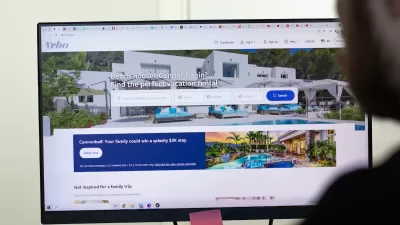The Aspen City Council hopes the stricter regulations on short-term rentals and new home construction will stem the astronomical rise of housing costs in the mountain town.

“The Aspen City Council this week approved strict regulations limiting short-term rentals and easing the process for developing affordable housing, concluding seven months of work to rein in a real estate market frenzy that has homes selling for as much as $6,000 a square foot,” according to an article by Jason Blevins in The Colorado Sun. To illustrate the impact of rising housing prices on the town, Blevins notes that “In the first five months of this year, 94 Aspen homes sold for a total of more than $1 billion.”
“The new legislation, which the five-member council approved unanimously in meetings on Tuesday and Thursday, will reduce the number of short-term rental permits, limit the number of annual home demolitions, rezone residential parcels to allow for higher density and impose fees on residential development to pay for workforce housing.”
Per the new rules, “Permits will be issued to individuals, not companies and permits will not transfer when a home sells. The new ordinance reduces permits outside downtown zones with hotels and condo lodging by 25% and raises STR fees by 15%.” It also “reduce[s] the percentage of Aspen homes used for short-term rentals to 8%, from 11%.”
Like other popular vacation towns, “For nearly half a century, end-of-the-road Colorado villages like Aspen, Crested Butte and Telluride have navigated the commodity-versus-community clash with all sorts of fees, caps and regulations meant to protect affordability and local culture. And nothing has really worked, with real estate prices climbing as demand grows and the supply of new homes stalls under the regulation.” As short-term rentals (STRs) proliferate in part thanks to platforms like Airbnb and VRBO and workers suddenly untethered from their jobs thanks to remote work flock to small towns, the city hopes limiting STRs will preserve more affordable workforce housing for locals who find it increasingly difficult to stay in their towns.
Phillip Supino, Aspen’s community development director, called the city’s land use code “an evolving document,” acknowledging the potential for unintended consequences while suggesting that the council stay open to future amendments and adjustments.

Rethinking Redlining
For decades we have blamed 100-year-old maps for the patterns of spatial racial inequity that persist in American cities today. An esteemed researcher says: we’ve got it all wrong.

Montreal Mall to Become 6,000 Housing Units
Place Versailles will be transformed into a mixed-use complex over the next 25 years.

Planetizen Federal Action Tracker
A weekly monitor of how Trump’s orders and actions are impacting planners and planning in America.

Seattle Safe Parking Site to Close, Relocate
A nonprofit leases lots during permitting stages to erect tiny homes and RV safe parking sites for unhoused residents. But the model means constant uncertainty and displacement.

LA ‘Mobility Wallet’ Increased Quality of Life for Participants
The city distributed a monthly $150 transportation subsidy to 1,000 low-income Angelenos. It dramatically improved their lives.

Texas, California Rail Projects Seek Out Private Funding
In the wake of Trump’s cuts to high-speed rail projects, rail authorities are looking to private-public partnerships to supplement their budgets.
Urban Design for Planners 1: Software Tools
This six-course series explores essential urban design concepts using open source software and equips planners with the tools they need to participate fully in the urban design process.
Planning for Universal Design
Learn the tools for implementing Universal Design in planning regulations.
City of Camden Redevelopment Agency
City of Astoria
Transportation Research & Education Center (TREC) at Portland State University
Regional Transportation Commission of Southern Nevada
Toledo-Lucas County Plan Commissions





























